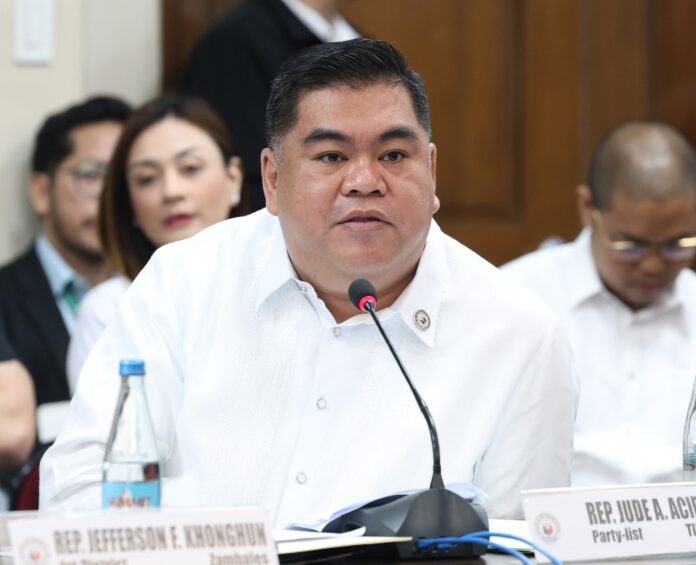A party-list lawmaker called on national government agencies to move beyond public statements and take swift, coordinated action to address the ongoing transportation and economic crisis stemming from the restrictions imposed on the San Juanico Bridge.
“We need to work together—not in silos, not in press releases, but in action,” TINGOG Party-list Rep. Jude Acidre said a privilege speech.
“They need to set up interim transport solutions, fast-track permits, manage port congestion, prevent overpricing, provide basic support to stranded motorists, and ensure our medical and food supply chains don’t collapse,” he added.
Acidre emphasized that what the region needs now are concrete and immediate interventions, not bureaucratic delays or piecemeal responses.
“We’re facing escalating freight costs, longer transit times, looming economic slowdown, reduced investor confidence, and potential ripple effects on food security and health logistics nationwide,” he warned.
“This demands an urgent, no-excuses economic mitigation plan—one that treats this with the same urgency we reserve for natural disasters.”
Acidre highlighted the commendable response of local stakeholders who stepped up in the absence of decisive national direction.
He praised the Provincial Government of Samar, under the leadership of Governor Sharee Ann Tan, for quickly convening local stakeholders, and the Regional Development Council’s Executive Committee for holding an emergency meeting to craft early solutions.
Acidre also lauded the proactive role of the business sector—including the Philippine Chamber of Commerce and Industry Tacloban-Leyte, the Tacloban Filipino-Chinese Chamber of Commerce, the Constructors Association, and the Drugstores Association—“who did not only raise the alarm, but also rolled up their sleeves to help craft solutions.”
However, the lawmaker expressed deep frustration over the national government’s lack of foresight and urgency.
“Let me be clear: the people of Eastern Visayas are not angry because the bridge is being repaired. We welcome this rehabilitation. What we cannot accept is the insensitivity—the utter disregard—of those entrusted to plan this repair,” Acidre emphasized.
He recounted a meeting held on May 17 with representatives of concerned agencies. “While I commend those who showed up, listened, and committed to act, the truth was also painfully clear: most agencies were reacting, not leading.”
Concluding his speech, Acidre reiterated the urgent need for a well-coordinated, well-resourced, and time-bound economic mitigation plan, including the immediate disbursement of emergency funds and clear accountability from implementing agencies.
“This is no longer just a regional issue,” he said. “The whole country should pay attention—because the failure to act decisively here could be a preview of what happens when we let planning failures spiral into national crises.”









